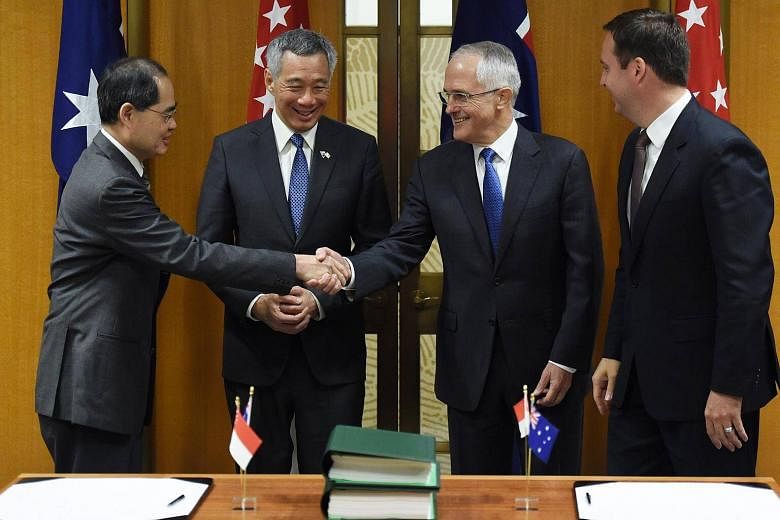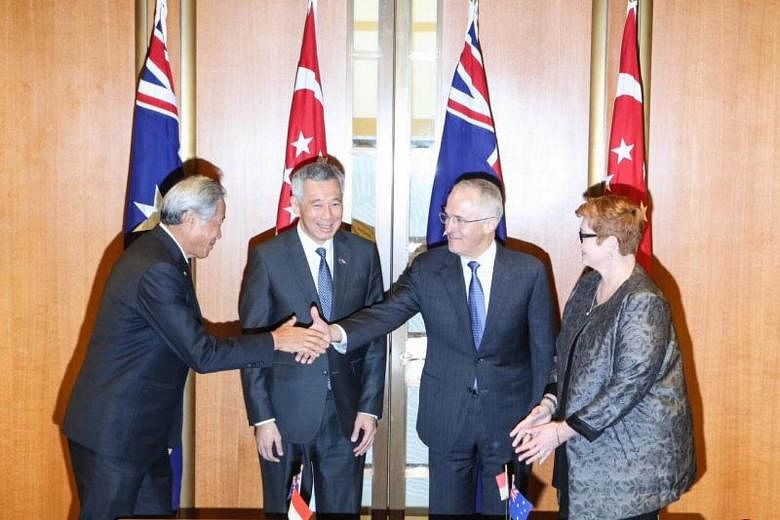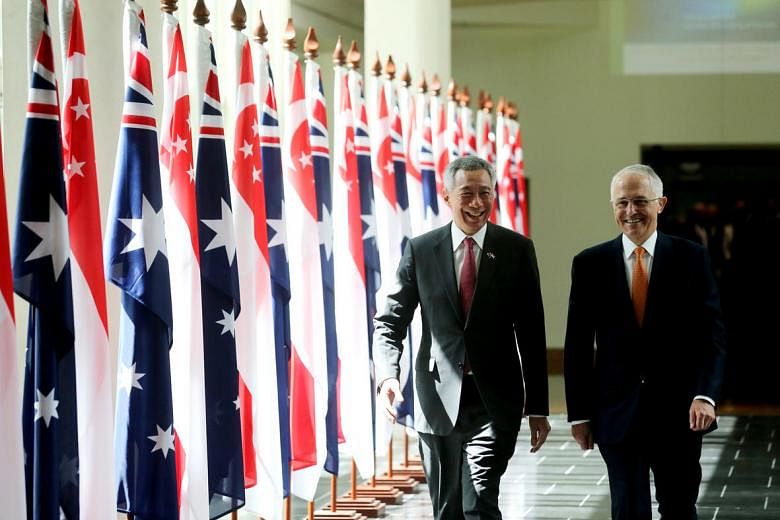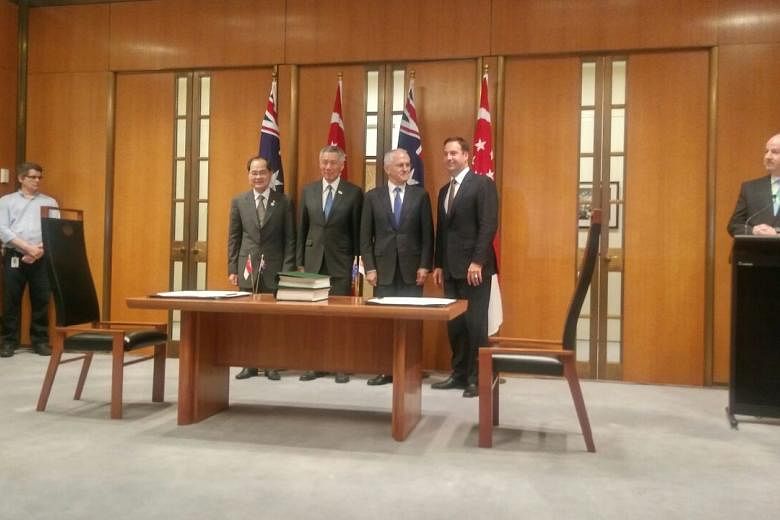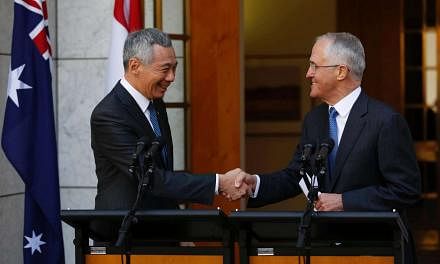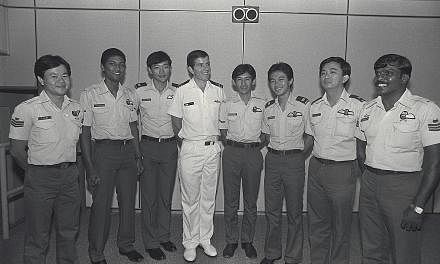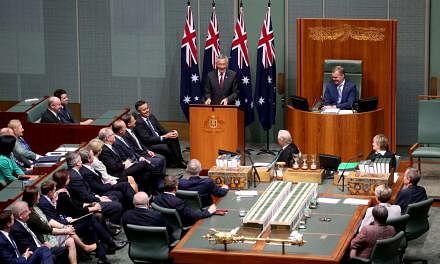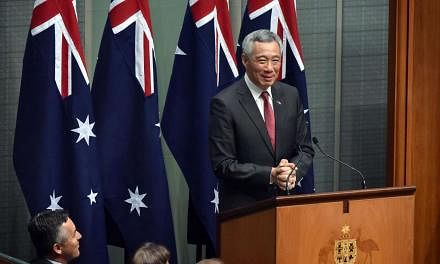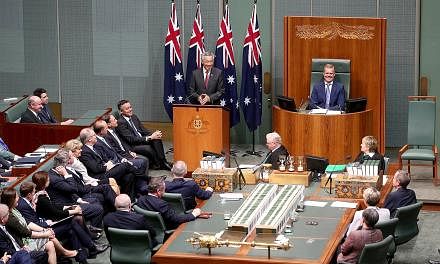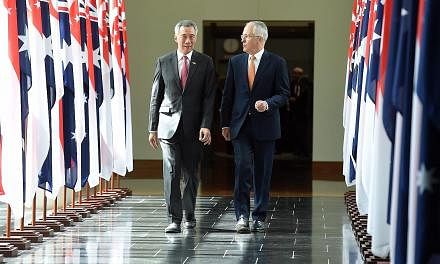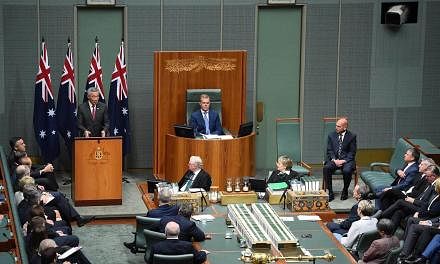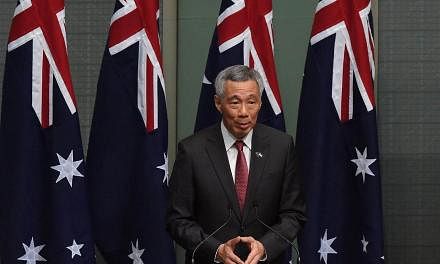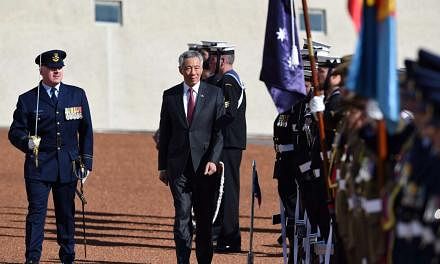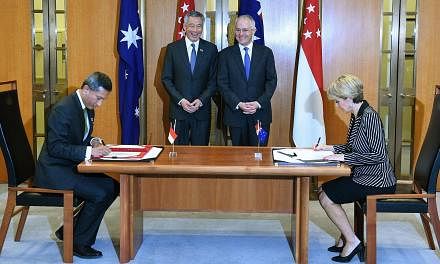CANBERRA - Singapore and Australia signed four key agreements on Thursday (Oct 13) morning, marking the start of the first tranche of initiatives under the Comprehensive Strategic Partnership, a pact that elevates the relationship between the two countries.
Singapore Prime Minister Lee Hsien Loong and his Australian counterpart Malcolm Turnbull were witnesses to the signing, which took place in Canberra's Parliament House.
One of the agreements will see trade ties being deepened while the other three will see the two countries collaborate more closely in the areas of defence, scientific research and tackling drug trafficking.
More specifically, the agreements are:
- A third update of the Singapore-Australia Free Trade Agreement (FTA), to be enforced in 2017, which promises companies in both countries increased access to the other's markets across sectors.
This includes provisions to make it easier for Singapore exports to qualify for tariff-free treatment, and the reduction of regulatory barriers over goods like wine, medical devices and cosmetics.
Minister of Trade and Industry (Trade) Lim Hng Kiang, who signed the FTA with his Australian counterpart Steven Ciobo, said it "signals the commitment of both governments to promote stronger economic ties by increasing the flow of goods, services, and investment between our countries".
- Enhanced defence cooperation between the two nations, most significantly through a A$2.25 billion (S$2.35 billion) programme that would give more Singapore troops access to a bigger training area for 25 years.
When in effect, the Singapore Armed Forces can send 14,000 soldiers, up from 6,600, for 18 weeks, up from six.
Planning and detailed design will begin early next year, and the ramp up in training is expected to take place in the coming years.
Both nations will also develop Exercise Trident as the joint military exercise, work together on defence science technology and hold a pilot Track 1.5 Security Dialogue.
Speaking to local reporters at the end of his visit, Mr Lee said the new deal will give soldiers access to better training facilities: "I'm not sure if tough training is something that NSmen will say, 'Yay! It's very good!' but I think good training is good, and I'm sure many soldiers and NSmen will look forward to that."
- To promote collaboration on science research and innovation, both nations will jointly provide S$50 million to fund related projects. Discussion to identify these projects will begin early next year.
Australia will also set up its fifth "landing pad" in Singapore to facilitate the first of high-tech Australian start-ups into Asia.
Other areas of collaboration include joint strategic dialogues between the two governments, as well as tie-ups between Singapore's universities and Australia's Data61, to focus on big data and smart cities.
- Singapore's Central Narcotics Bureau (CNB) and the Australian Federal Police are working even more closely to tackle international drug trafficking, which the CNB noted in a statement is becoming increasingly active in a region viewed as a lucrative and growing market.
In particular is the rapid proliferation of new psychoactive substances, which it said are difficult to detect and pose serious threats to public health.
The two bodies will "work together to strengthen capacity and professional development via joint training, learning and development programmes and exchange of officers."
At a joint press conference after the signing ceremony, Mr Lee said he had a fruitful discussion with Mr Turnbull on a wide range of issues.
"Both countries share a convergence of views on major strategic issues and we are comfortable working with each other," he said.
"We collaborated to build an inclusive and open regional security architecture, keep the international trading system open and enhance regional trading arrangements, built strategic trust which underpins Singapore-Australia relations and enabled us to conclude an ambitious and forward-looking CSP."
